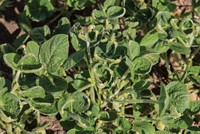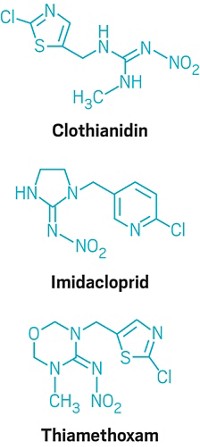Advertisement
Grab your lab coat. Let's get started
Welcome!
Welcome!
Create an account below to get 6 C&EN articles per month, receive newsletters and more - all free.
It seems this is your first time logging in online. Please enter the following information to continue.
As an ACS member you automatically get access to this site. All we need is few more details to create your reading experience.
Not you? Sign in with a different account.
Not you? Sign in with a different account.
ERROR 1
ERROR 1
ERROR 2
ERROR 2
ERROR 2
ERROR 2
ERROR 2
Password and Confirm password must match.
If you have an ACS member number, please enter it here so we can link this account to your membership. (optional)
ERROR 2
ACS values your privacy. By submitting your information, you are gaining access to C&EN and subscribing to our weekly newsletter. We use the information you provide to make your reading experience better, and we will never sell your data to third party members.
Environment
Honeybee Loss
Germany suspends use of clothianidin after the pesticide is linked to honeybee deaths
by Sarah Everts
May 21, 2008

A few weeks after honeybee keepers in the southern German state of Baden Württemberg reported a wave of sudden honeybee deaths, federal authorities have ordered a suspension on the sale and trafficking of clothianidin-based pesticides.
"It can unequivocally be concluded that a poisoning of the bees is due to the rub-off of the pesticide ingredient clothianidin from corn seeds," notes a press release from the Julius Kuehn Institute (JKI), the German federal agricultural research agency.
"Beekeepers in the region started finding piles of dead bees at the entrance of hives in early May, right around the time corn seeding takes place," says Walter Haefeker, president of the European Professional Beekeepers Association.
To protect seedlings, corn seeds can be coated with the pesticide clothianidin (shown), which is produced by Monheim, Germany-based Bayer CropScience and was approved for use in Germany in 2004. The pesticide was approved for use with some restrictions in the U.S. in 2003.
Clothianidin is a neurotoxin, specifically interfering with insect acetylcholine receptors. Although the pesticide is also toxic to bees, clothianidin was approved because bees were not expected to have any contact with clothianidin-coated seeds under soil, says Stefanie Hahn, a spokeswoman for the JKI.
However, this year, corn seeds were coated with more than double the normal amount of clothianidin to counteract a corn beetle infestation in Baden Württemberg, Hahn notes. The extra pesticide coating, as well as use of sowing machinery that shoots seeds into the ground, probably led to the release and spread of clothianidin dust to nearby blooming flowers, which bees pollinate, she says.
"We are saddened by the loss of the bees," notes a Bayer CropScience statement. "Bayer CropScience is keen to establish a certification system in cooperation with seed companies, in order to avoid incorrect use of seed treatment products in the future. At the same time, the company is working with manufacturers of pneumatic corn-sowing equipment to develop ways of avoiding the drift of product particles during sowing." Citing clothianidin???s toxicity, beekeepers are pushing for a complete ban of the pesticide in Germany, as was done in France earlier this year.






Join the conversation
Contact the reporter
Submit a Letter to the Editor for publication
Engage with us on Twitter